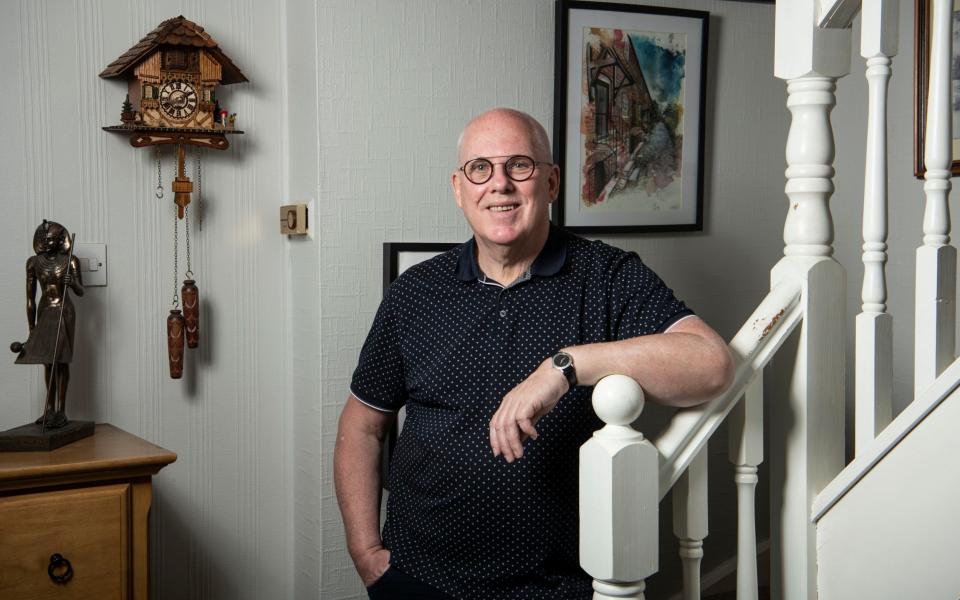'My bank said I had to quadruple my mortgage payment or sell my home'

Hundreds of thousands of older homeowners may be forced to sell their properties as rising interest rates and strict rules from lenders leave them struggling to find – or afford – a loan.
A wave of interest-only borrowers, at risk of becoming so-called “pensioner mortgage prisoners”, will see their fixed-term deals end in the coming years but find they are too old to remortgage, experts have warned. This leaves no option other than move on to unaffordable repayment plans or sell up to pay off the debt.
The number of victims is expected to surge this decade – just as interest rates rise and the cost of living crisis eats away at savings and income.
Some 334,000 interest-only mortgage customers will see fixed-term deals end between 2022 and 2027, according to UK Finance, a trade body. The majority of these borrowers are already over 50 and will struggle to find a new loan. Lenders typically do not offer deals that end after a customer turns 75 or 80. As the loans are interest-only, the borrowers are also unlikely to have built up significant equity in their homes and must repay loans by selling up or via high-interest repayment plans that end by age 75 or 80.
David Higginson, 69, from Stockport, took out an interest-only deal that expired in November 2021. Lloyds, his lender, demanded he repay £125,000 or sell up. But his two-bedroom house was only worth £250,000 – leaving him with little left over. “I would have had to pay £1,000 per month to rent somewhere,” he said.

Lloyds offered him a 10-year repayment loan but accepting this would have meant his monthly repayments quadrupled from £260 to around £1,000 per month – half his monthly income. Mr Higginson was rejected by a further eight building societies because of his age.
The coming tidal wave of forced sales is the second of three peak periods when interest-only mortgages mature, according to a report by the Financial Conduct Authority, the City watchdog. The first was in 2017-2018, which followed a flurry of endowment mortgages sold in the 1990s and early 2000s. However, these were primarily sold to affluent borrowers.
The second group has mortgages bought between 2003 and 2009, which start maturing this year and peak between 2027 and 2028. These deals were sold to less affluent homeowners, the FCA warned, and borrowers face a higher risk of being forced to sell. The third peak, in 2032, is expected to be even worse.
David Atkins, 75, and his wife Theresa, 69, bought their home near Preston in 2004. They needed to help their mothers with care in old age, and they also have nine children, so took an interest-only mortgage to keep costs down.
Their term expired in July 2021 when the property was worth £275,000 but their outstanding balance was £220,000. Halifax, their lender, asked for repayment.
Mr Atkins said: “They said they don’t do mortgages for people over 75.” They considered selling up.

Those suddenly left scrambling to fill the gap have turned to equity release. In the first three months of this year, 42pc of equity release customers used the money to repay a mortgage, according to Key Later Life Finance, a financial planner. This accounted for more than half of all equity release lending – a jump from 45pc in the same period in 2021 and the highest share on record.
Others turned to specialist lenders which offer interest-only retirement mortgages. Mr Higginson and the Atkins remortgaged through LiveMore, which began trading in October 2020. Their costs are higher than under their previous deals (Mr Higginson now pays £500) but are cheaper than renting.
Leon Diamond, of the specialist lender, said: “We’re likely to see a steep rise in mortgage prisoners. This means customers who are sitting on high floating-rate mortgages but have no repayment strategy.”
Homeowners on interest-only mortgages typically pay a standard variable rate, which means they are particularly exposed as interest rates rise. “Over the next six to 12 months, we are going to see missed payments and defaults hit the market,” Mr Diamond added.
David Hollingworth, of L&C mortgage brokers, said borrowers will be squeezed just as they should be making repayments.
Large numbers of older homeowners are on interest-only deals sold pre-2008, before post-crash regulations brought more stringent affordability checks and requirements for clear repayment plans, he said.
House price growth in the early 2000s meant buyers were incentivised to try to keep their mortgage costs low. “These borrowers face a real crunch in later life,” he added.
Alex Edmans, of Saga Personal Finance, which caters to the over-50s, said: “A lot of people sleepwalk into this and then get a rude awakening.”
A Lloyds Banking Group spokesman said: “We contact our interest-only customers throughout the term of their mortgage to remind them of the importance of an appropriate repayment vehicle and to get in touch if they have any concerns. We have a team of colleagues dedicated to finding solutions for anyone that needs additional help.”

 Yahoo Finance
Yahoo Finance 